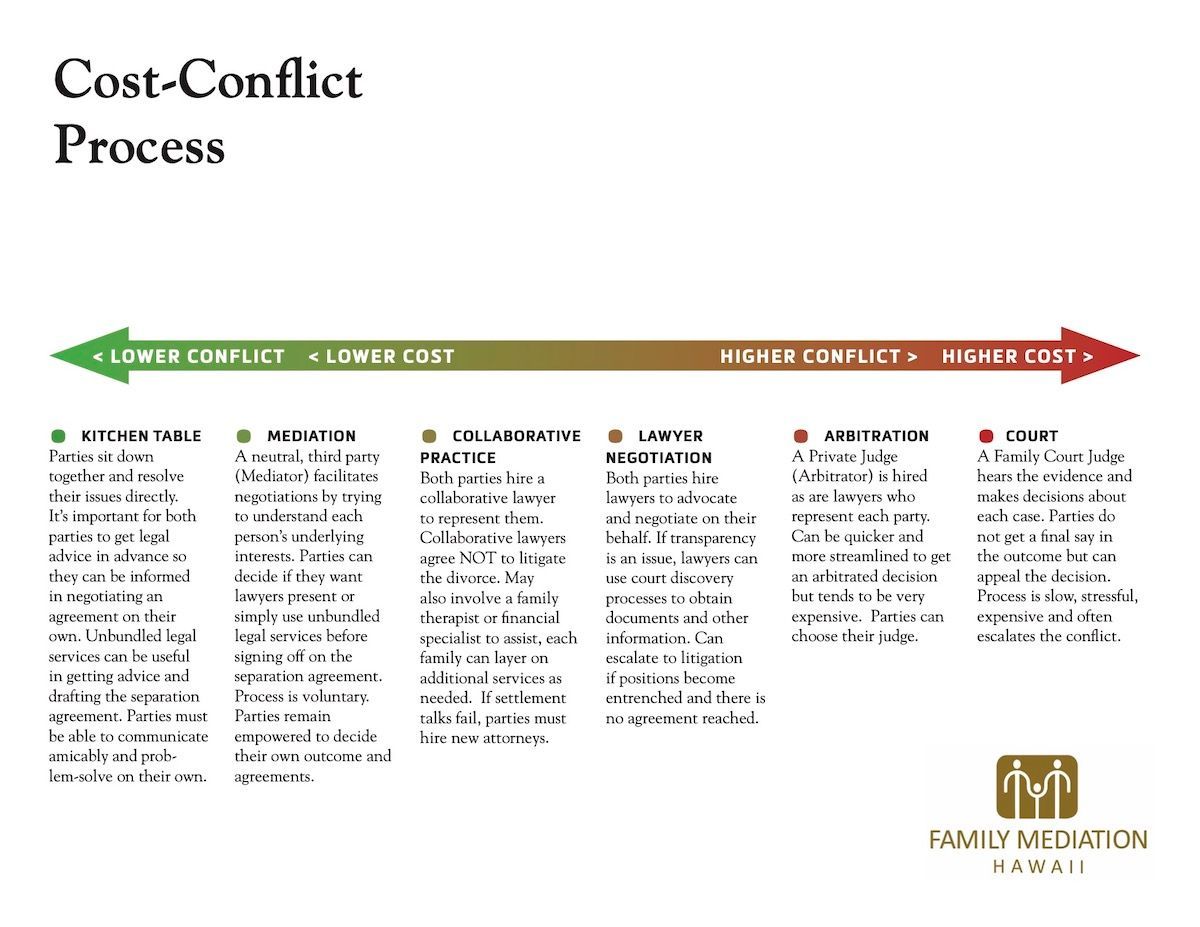My Job as A Family Mediator
My Job as a Family Mediator Is to Minimize the Fallout of Divorce
“It’s not divorce that’s bad for kids; it’s conflict,” says Katie Bennett.
FEBRUARY 28, 2022 VICTORIA BUDIONO
Kate Bennett | Photo: Aaron Yoshino NAME: KATIE BENNETT
JOB: FAMILY MEDIATOR
Beginnings: “I am a reformed divorce attorney. I litigated for many years before I had my kids,” says Katie Bennett.
Motherhood made her realize that conflicts between separating spouses can be hard on the children.
She has a master’s in social work and a law degree from UH Mānoa. She says her expertise in social work helps her understand the emotional issues prevalent in divorce cases.
“Divorce is mostly an emotional issue instead of a legal one.”
Key Skill: “Listening, listening, listening.”
As a mediator, “I have to dig in and understand not what people want but why they want it. It’s important to acknowledge their underlying interests and needs if you really want to help settle a case.”
Bennett says it’s important to hear a situation from both sides. “Even with two great attorneys, it can be hard to settle things without that neutral person who hears from both sides that can help find resolutions that everyone can live with.”
Misconceptions: “I am not their therapist.”
A therapist focuses more on feelings and emotions, Bennett says, but a family mediator helps separating couples reach agreements on their children and finances.
“It is only a brief intervention that is meant to come up with a resolution for the family. I have zero power. Unlike a judge, I can’t force people to do anything.”
She helps find common ground between her clients so they can ameliorate their problems without litigation. And she educates people on not only what the law says, but also on what others have done and what child development experts advise.
“I find mediation to be more consistent with my values because I can tell them what I honestly think.”
The Children: My focus has always been on supporting kids to get the best outcomes,” Bennett says.
“My children make me a better mediator. They help me understand what it’s like to work with young children and teenagers.”
Being a mother of three, she understands how difficult parenting can be and empathizes with struggling parents.
“It’s not divorce that’s bad for kids; it’s conflict. So, if the parents could amicably disentangle, the kids are going to be fine. We want the parents to avoid constantly fighting because that’s when you see some of the negative outcomes.”
Not for everyone: Bennett says mediation can be challenging because it lacks litigation’s discovery component. If her clients cover up finances or personal issues, mediation might not succeed.
Self-care: Bennett’s work, which includes child welfare cases for the Family Court, is emotionally and psychologically challenging. “Working with families in crisis can be tough.”
In fact, while mediating hard-hitting cases, it can be hard to not feel “vicarious trauma,” she says.
She knows she has to care for herself so she can care for her clients. “I do yoga every morning, see my own individual therapist every week and I like to have my weekends off to spend time with my own family.”
This interview has been edited for clarity and conciseness.
This article appears in the March 2022 issue of Hawaii Business Magazine.
Check this out! https://www.hawaiibusiness.com/my-job-as-a-family-mediator-is-to-minimize-the-fallout-of-divorce/












